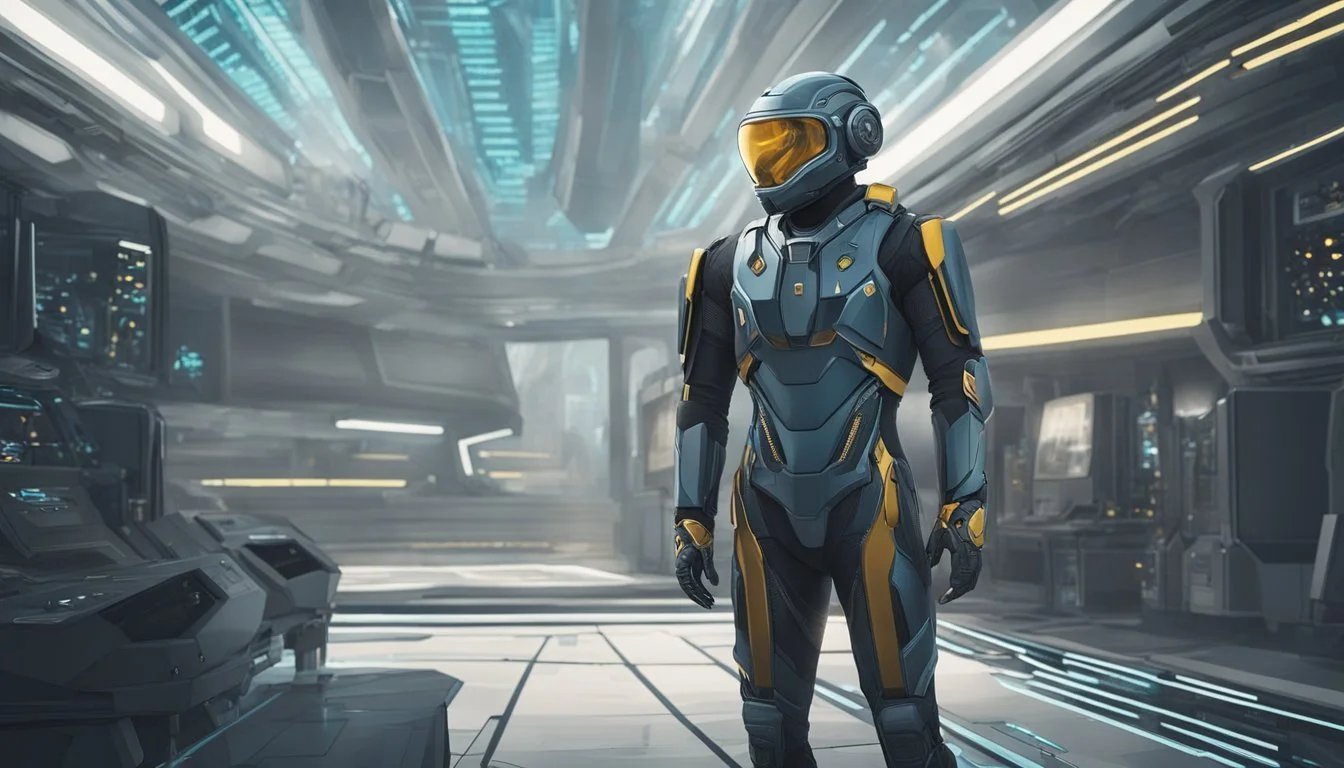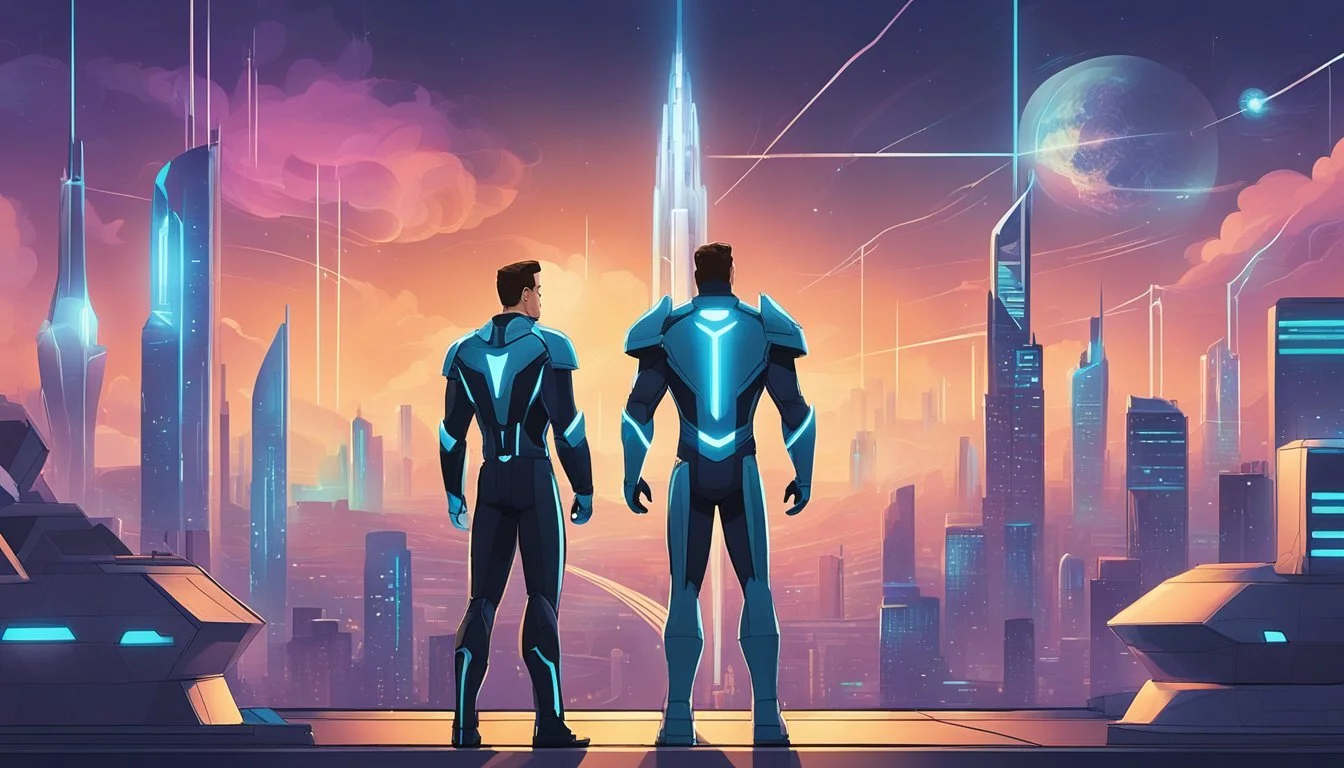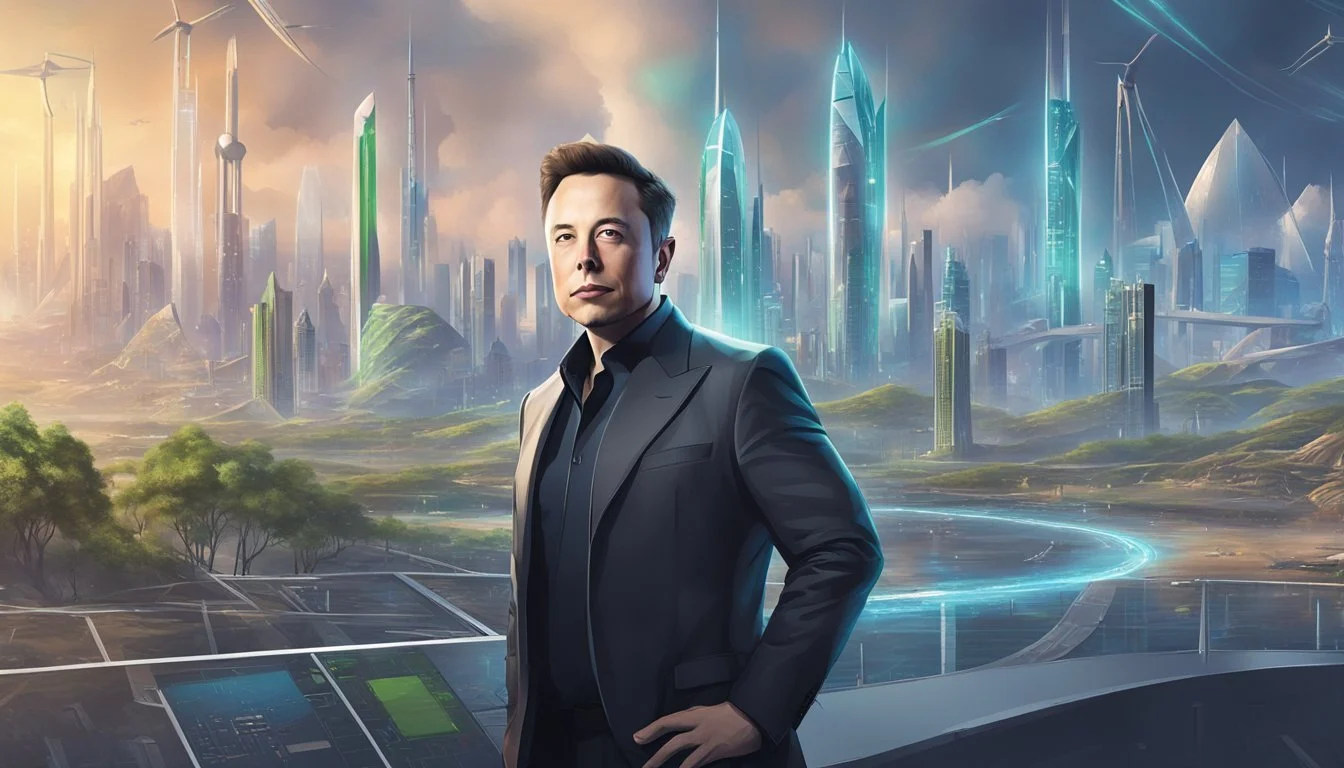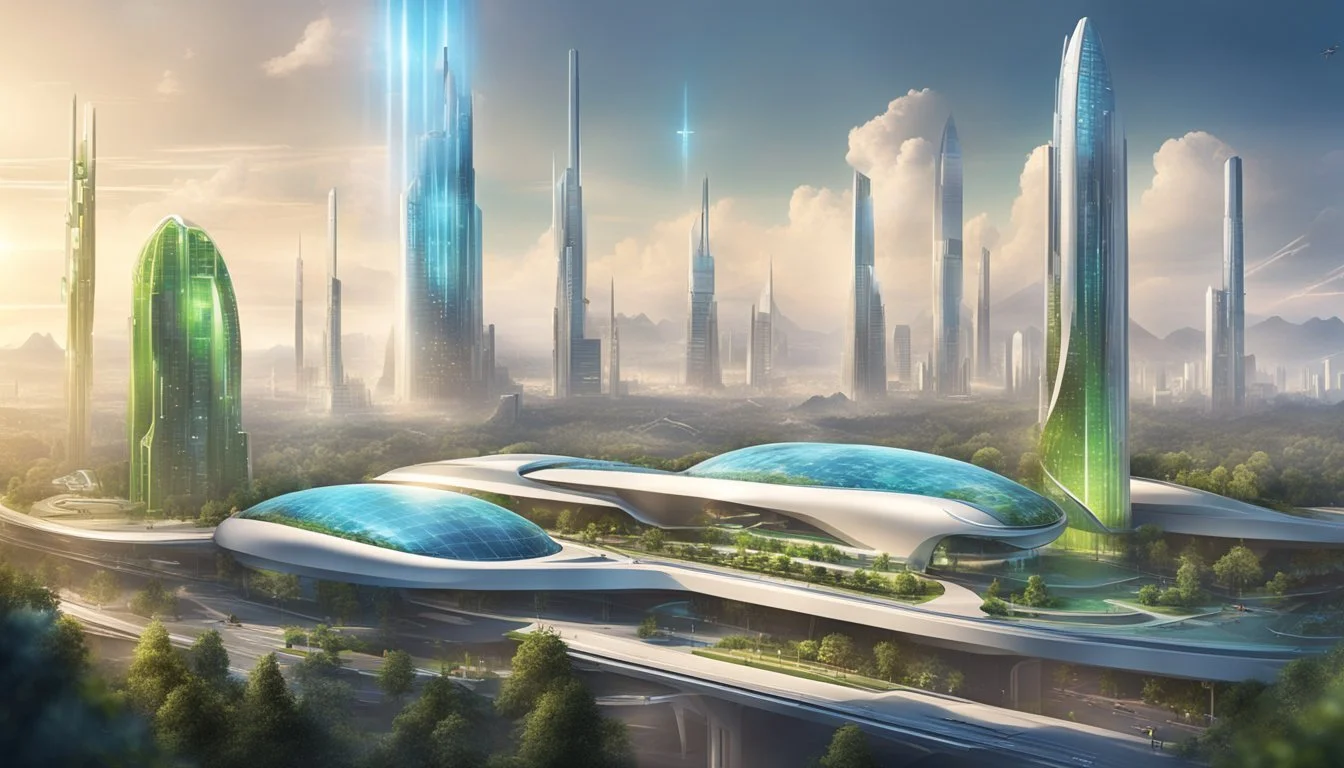Musk's Motivation: Existential Threats and Tech Solutions in Real Life Iron Man
Visionary Billionaire's Quest to Save Humanity
Elon Musk, often dubbed "The Real Life Iron Man," has become synonymous with technological innovation and a drive to address existential threats facing humanity. His ventures span multiple industries, from electric vehicles to space exploration, all underpinned by a philosophy of questioning reality and seeking purpose.
Musk's motivation stems from his belief that artificial intelligence, demographic shifts, and energy challenges pose significant risks to human existence. At the 2024 Future Investment Initiative in Riyadh, he emphasized the need for a cautious yet ambitious approach to shaping the future, particularly regarding AI's rapid advancement.
The billionaire entrepreneur's childhood experiences shaped his business sensibility and fueled his desire to tackle global challenges. Musk's companies, including Tesla and SpaceX, reflect his commitment to developing technological solutions that address climate change, sustainable energy, and space colonization. His proactive stance on AI regulation underscores his concern about potential dangers and his determination to ensure its responsible development.
Elon Musk: The Visionary Behind Tesla and SpaceX
Elon Musk has emerged as a pioneering entrepreneur, driving innovation in electric vehicles and space exploration. His companies Tesla and SpaceX have become synonymous with technological advancement and ambitious goals.
Tesla Motors: Revolutionizing Electric Cars
Tesla Motors, founded in 2003, has transformed the automotive industry under Musk's leadership. The company's mission to accelerate the world's transition to sustainable energy has led to groundbreaking electric vehicles.
Tesla's first mass-market car, the Model S, set new standards for electric vehicle performance and range. Subsequent models like the Model 3 and Model Y have made electric cars more accessible to a broader market.
Musk's focus on vertical integration has allowed Tesla to innovate rapidly in battery technology and autonomous driving features. The company's Gigafactories produce batteries and vehicles at scale, reducing costs and improving efficiency.
SpaceX and the Quest to Colonize Mars
SpaceX, founded by Musk in 2002, aims to revolutionize space technology and enable human colonization of Mars. The company has achieved numerous milestones in space exploration and rocket technology.
SpaceX's reusable rocket technology, exemplified by the Falcon 9 and Falcon Heavy, has significantly reduced the cost of space launches. This innovation has made space more accessible for both commercial and scientific missions.
The development of the Starship spacecraft represents SpaceX's ambitious plan to transport humans to Mars. Musk envisions establishing a self-sustaining city on the Red Planet, potentially safeguarding human civilization from existential threats on Earth.
SpaceX has also launched the Starlink satellite constellation, aiming to provide global high-speed internet coverage, particularly in underserved areas.
Technological Innovations and Entrepreneurship
Elon Musk's ventures span diverse industries, leveraging cutting-edge technology to address global challenges. His entrepreneurial spirit has driven advancements in online payments, transportation, and internet connectivity.
PayPal: Pioneering Online Payments
In 1999, Musk co-founded X.com, which later merged with Confinity to become PayPal. This platform revolutionized online financial transactions, making it easier and more secure for people to send and receive money electronically.
PayPal introduced features like email payments and fraud protection systems. These innovations helped build trust in e-commerce during its early days.
The company's success led to its acquisition by eBay in 2002 for $1.5 billion. This deal provided Musk with the capital to pursue his more ambitious technological ventures.
Hyperloop: The Future of Travel Technology
Musk introduced the Hyperloop concept in 2013, envisioning a high-speed transportation system for both passengers and cargo. The technology proposes using pods traveling through low-pressure tubes at near-supersonic speeds.
Key features of the Hyperloop include:
Speeds up to 760 mph (1,220 km/h)
Reduced travel times between major cities
Lower energy consumption compared to traditional modes of transport
While Musk open-sourced the initial concept, several companies are now working to bring this technology to life. The Hyperloop aims to revolutionize long-distance travel, potentially replacing short-haul flights and high-speed rail.
The Rise of Starlink: Global Broadband Internet
Starlink, a division of SpaceX, aims to provide high-speed internet access globally through a constellation of low Earth orbit satellites. This ambitious project addresses the digital divide by bringing connectivity to remote and underserved areas.
Starlink's key advantages include:
Low latency for improved performance
Global coverage, including rural and remote regions
Potential for disaster relief communications
As of 2024, Starlink has launched thousands of satellites and continues to expand its service. The project faces challenges such as space debris concerns and competition from traditional internet providers.
Musk's vision for Starlink extends beyond consumer internet, with potential applications in maritime and aviation industries.
Elon Musk's Influence on Popular Culture
Elon Musk's impact on popular culture has been significant, with connections drawn to iconic fictional characters and real-world actors. His persona and achievements have inspired comparisons to science fiction heroes and Hollywood portrayals.
Iron Man and Tony Stark: The Sci-Fi Connection
Elon Musk's public image often draws parallels to Marvel's Iron Man character, Tony Stark. Both are ambitious tech billionaires with a flair for innovation and grand visions. Musk's work with electric cars, space exploration, and renewable energy aligns with Stark's fictional technological advancements.
This comparison has solidified Musk's status as a real-life superhero in the eyes of many. His companies like Tesla and SpaceX are seen as modern equivalents to Stark Industries. The Iron Man films have even featured Musk's inventions, further blurring the lines between fiction and reality.
Robert Downey Jr.: The Inspiration for a Billionaire Inventor
Robert Downey Jr., who portrays Tony Stark in the Marvel Cinematic Universe, has publicly acknowledged Musk's influence on his character. The actor visited SpaceX headquarters to study Musk's mannerisms and personality traits.
This mutual admiration has strengthened the association between Musk and Iron Man in popular culture. Downey Jr.'s portrayal of Stark often mirrors Musk's public persona - charismatic, witty, and driven by technological innovation.
The connection has boosted Musk's celebrity status beyond the tech world. It has helped shape his image as a visionary entrepreneur capable of turning science fiction into reality.
Artificial Intelligence and Engineering Prowess
Elon Musk's ventures showcase the integration of artificial intelligence and advanced engineering to push technological boundaries. His companies leverage AI and innovative engineering to revolutionize space exploration and electric vehicles.
AI and SpaceX: Advancing Space Technology
SpaceX utilizes AI to enhance spacecraft capabilities and mission planning. Machine learning algorithms optimize rocket designs and improve launch success rates. AI-powered systems assist in autonomous docking procedures for the Dragon spacecraft.
SpaceX's Starlink satellite network employs AI for efficient orbital management and communication routing. This technology enables high-speed internet access in remote areas.
The company's reusable rocket technology relies on AI for precise landings. Neural networks process real-time data to adjust rocket trajectories during descent.
Engineering Breakthroughs in Tesla's Electric Vehicles
Tesla's electric vehicles incorporate AI to deliver cutting-edge features. The Autopilot system uses computer vision and neural networks to interpret road conditions and navigate safely.
Tesla's battery technology represents a significant engineering achievement. Advanced cell chemistry and thermal management systems extend range and improve charging speeds.
The company's over-the-air software updates leverage AI to enhance vehicle performance and introduce new features. This approach allows continuous improvement of existing vehicles.
Tesla's manufacturing processes employ AI-driven robotics for increased efficiency and precision. Machine learning algorithms optimize production line operations and quality control.
Strategic Alliances and Geopolitical Impact
Elon Musk's ventures have forged powerful partnerships and reshaped global dynamics. His collaborations with government agencies and impact on international affairs demonstrate the far-reaching influence of his technological empire.
Collaboration with NASA: A Milestone Partnership
SpaceX's partnership with NASA marks a pivotal shift in space exploration. The company's Crew Dragon spacecraft has successfully transported astronauts to the International Space Station, ending NASA's reliance on Russian rockets. This collaboration has revitalized the U.S. space program and sparked a new era of commercial spaceflight.
SpaceX's reusable rocket technology has significantly reduced launch costs, making space more accessible. The Falcon 9 and Falcon Heavy rockets have set new standards for efficiency and payload capacity.
NASA has awarded SpaceX multiple contracts for lunar missions, including the Artemis program aimed at returning humans to the Moon. This partnership exemplifies the growing synergy between public and private sectors in space exploration.
Tech Empire and Military Dominance
Musk's companies have become integral to U.S. military infrastructure. SpaceX's Starlink satellite network provides secure communications for military operations. The company has launched classified payloads for the Department of Defense, enhancing national security capabilities.
Tesla's battery technology and autonomous driving systems have potential military applications. The company's innovations in electric vehicles could revolutionize military logistics and transportation.
Neuralink's brain-computer interface technology may have future implications for enhanced soldier performance and rehabilitation of wounded veterans.
Global Security and Civilian Internet Accessibility
Starlink's global satellite network has significant geopolitical implications. The system provides internet access in remote areas and conflict zones, potentially bypassing government censorship.
During the Ukraine conflict, Starlink played a crucial role in maintaining communications infrastructure. This demonstrated the system's strategic importance in modern warfare and humanitarian crises.
Musk's control over Starlink raises questions about the privatization of critical infrastructure. His ability to activate or deactivate the service in specific regions has sparked debates about the extent of corporate influence on global affairs.
The widespread adoption of Starlink could reshape internet governance and challenge traditional state control over information flow.
Musk's Leadership and Future Aspirations
Elon Musk's leadership style and ambitious plans continue to shape the future of technology and innovation. His visionary approach spans multiple industries, from communication networks to potential military applications.
Expanding the Frontiers of Communication Networks
Musk's Starlink project aims to revolutionize global internet access. The satellite constellation seeks to provide high-speed, low-latency broadband internet to users worldwide, especially in underserved areas. SpaceX has launched thousands of satellites, with plans to deploy tens of thousands more.
Starlink's potential impact extends beyond consumer use. The network could enhance connectivity for remote military operations and disaster relief efforts. Musk's leadership in this venture demonstrates his commitment to solving large-scale communication challenges.
Vision of the Future: Combining Military Operations with Tech
Musk's tech empire increasingly intersects with military applications. His companies have secured contracts with the U.S. Department of Defense, showcasing the strategic value of his innovations.
SpaceX's reusable rocket technology has caught the military's attention for potential rapid deployment capabilities. Tesla's battery and AI advancements could find applications in military vehicles and autonomous systems.
Musk's Neuralink project, while primarily focused on medical applications, may have future military implications for enhancing human performance. His leadership in these areas positions him as a key figure in shaping the future of military technology.
The Global Response and Impact
Musk's ventures have sparked a wave of innovation and competition worldwide. His projects have also had tangible impacts in crisis situations, as seen with Starlink's deployment in Ukraine.
Competition and Inspiration: Other Startups and Innovations
Musk's success has inspired numerous startups to tackle ambitious technological challenges. Companies like Rivian and Lucid Motors have entered the electric vehicle market, pushing innovation in battery technology and design.
In the space sector, firms such as Blue Origin and Virgin Galactic are developing their own reusable rocket systems. These companies are driving down launch costs and expanding access to space.
Hyperloop technology, initially proposed by Musk, has led to startups like Virgin Hyperloop and Hyperloop Transportation Technologies. These firms are working to make high-speed ground transportation a reality.
Examining the Ukrainian Use of Starlink: A Case Study
When Ukraine's communications infrastructure was disrupted during the conflict, Starlink proved crucial. The satellite internet service provided connectivity to civilians, emergency services, and military units.
Starlink terminals were rapidly deployed across Ukraine, enabling internet access in areas where traditional networks were damaged or jammed. This allowed for continued information flow and coordination of relief efforts.
The system's resilience to cyberattacks and jamming attempts demonstrated its strategic value in conflict zones. However, concerns were raised about potential vulnerabilities and the geopolitical implications of private companies providing critical infrastructure during crises.
Conclusion: Musk's Role in Shaping the Future
Elon Musk stands as a pivotal figure in technological advancement and innovation. His vision and drive have propelled multiple industries forward, from electric vehicles to space exploration.
Musk's engineering prowess and focus on cutting-edge technology have revolutionized sectors once thought stagnant. Tesla's success has accelerated the adoption of electric vehicles worldwide, pushing the automotive industry towards sustainability.
SpaceX has rejuvenated interest in space travel and colonization. The company's reusable rocket technology has dramatically reduced the cost of space missions, opening new possibilities for scientific research and exploration.
Musk's ventures extend beyond transportation. Neuralink aims to merge human cognition with artificial intelligence, while The Boring Company seeks to revolutionize urban transportation through underground tunnels.
His influence reaches beyond his own companies. Musk's public statements and actions often spark industry-wide conversations and shifts in focus, particularly regarding artificial intelligence and renewable energy.
Critics and supporters alike acknowledge Musk's significant impact on shaping humanity's technological future. His ambitious goals and relentless pursuit of innovation continue to push the boundaries of what's possible in engineering and technology.





